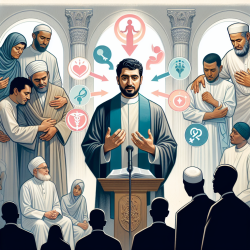Introduction
Abortion remains a complex and sensitive topic, particularly within religious communities. The study titled "Abortion attitudes, religious and moral beliefs, and pastoral care among Protestant religious leaders in Georgia" provides valuable insights into how religious leaders navigate this issue. This blog explores the findings of this study and suggests ways practitioners can enhance their skills by implementing these insights or conducting further research.
Understanding the Spectrum of Abortion Attitudes
The study reveals that religious leaders' attitudes towards abortion fall on a spectrum from "pro-life" to "pro-choice," with many expressing nuanced views that lie in the middle. This diversity in attitudes is shaped by varying beliefs about when life begins and the circumstances under which abortion might be morally acceptable. For practitioners, understanding this spectrum is crucial in providing empathetic and informed pastoral care.
Empathy and Compassion in Pastoral Care
One of the key findings is the emphasis on empathy and compassion. Regardless of their stance on abortion, religious leaders highlighted the importance of journeying with congregants, offering support and understanding. Practitioners can enhance their pastoral care by fostering an environment where individuals feel supported in making well-informed decisions.
Addressing Misinformation and Stigma
The study also identifies a gap in training and preparation among religious leaders to address abortion-related issues effectively. Misinformation about abortion and its psychological effects is prevalent. Practitioners are encouraged to seek accurate, evidence-based information to provide reliable guidance and reduce stigma within their communities.
Encouraging Further Research and Training
Given the complexity of abortion attitudes and the need for nuanced pastoral care, further research and training are essential. Practitioners can benefit from exploring theological and ethical dimensions of abortion, as well as engaging in interdisciplinary dialogues with public health experts. Such efforts can lead to more comprehensive and compassionate care practices.
Conclusion
The study offers valuable insights into the diverse attitudes and pastoral care practices among Protestant religious leaders in Georgia. By embracing empathy, addressing misinformation, and encouraging further research, practitioners can enhance their ability to support congregants facing abortion-related decisions. To read the original research paper, please follow this link: Abortion attitudes, religious and moral beliefs, and pastoral care among Protestant religious leaders in Georgia.










